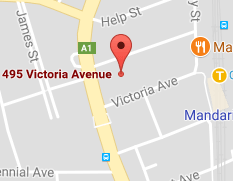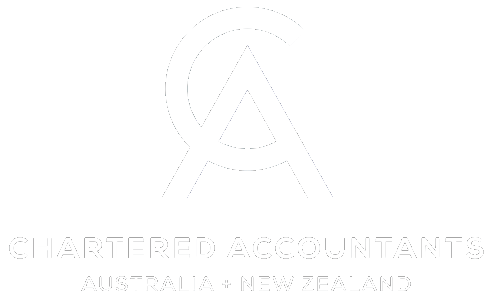The 2022-2023 Federal Budget has been delivered and has continued the Federal Governments focus on stimulating the economy out of the COVID-19 induced recession. Whilst there is less of an emphasis on spending compared to last years budget, it has targeted measures with an eye to the upcoming Federal election.
As with all Budgets, these are announcements only and have not been legislated. The details are still to be worked through, and both Houses of Parliament need to pass legislation before the announcements take effect.
The key personal, business-related and superannuation tax highlights of this year’s Budget are summarised below:
1. Personal income tax measures
Low income offset
The Government announced a one-off increase to the low and middle income tax offset (LMITO) of $420 for the 2021-22 income year, paid from 1 July 2022 with the lodgement of your personal income tax return for the 2021-22 year. This increases the maximum LMITO benefit in 2021-22 to $1,500 for individuals and $3,000 for dual income households.
Personal tax rates unchanged for 2022-23; stage 3 start from 2024-25
From 1 July 2024, the 32.5 per cent marginal tax rate will be cut to 30 per cent for the tax bracket $45,000 - $200,000. This will more closely align the middle tax bracket of the personal income tax system with corporate tax rates.
$250 cost of living payment to welfare recipients
The Government is providing a new one-off, income tax-exempt payment of $250 to help with increases in the current cost of living. It will be paid automatically to all eligible pensioners, welfare recipients, veterans, and eligible concession card holders in April 2022.
Increasing the Medicare levy low-income thresholds
The Government has announced that the Medicare levy low-income thresholds will be increased for singles, families, and seniors and pensioners from 1 July 2021.
The effect of this change is to take account of recent CPI movements so that low-income taxpayers generally continue to be exempt from paying the Medicare levy.
The changes to the Medicare levy low-income thresholds are as follows:
|
Medicare Low Income Threshold |
Threshold as at 30 June 2021 |
Threshold from 1 July 2021 |
|---|---|---|
|
Singles |
$23,226 |
$23,365 |
|
Families |
$39,167 |
$39,402 |
|
Single-seniors and pensioners |
$36,705 |
$36,925 |
|
Family-seniors and pensioners |
$51,094 |
$51,401 |
|
Family-for each dependent child or student |
$3,597 |
$3,619 |
COVID-19 test expenses to be deductible
The costs of taking a COVID-19 test to attend a place of work have been deemed tax deductible for individuals from 1 July 2021. This will ensure fringe benefits tax (FBT) will not be incurred by businesses where COVID-19 tests are provided to employees for this purpose. This change will be in place permanently.
2. Business related tax measures
Small business technology investment boost
Small businesses with an annual turnover less than $50 million will be able to deduct a bonus 20% of the cost of expenses and depreciating assets that support digital uptake. This includes portable payment devices, cyber security systems or subscriptions to cloud-based services. A $1 spend will equate to a $1.20 tax deduction. An annual cap of $100,000 will apply in each qualifying income year, and the boost will apply to eligible expenditure incurred from 7:30pm AEDT 29 March 2022 (i.e. Budget night) until 30 June 2023.
Small business skills and training boost
Small businesses with an annual turnover less than $50 million will have access to a new bonus 20% tax deduction for the cost of external training courses delivered to their employees by providers registered in Australia. A $1 spend will equate to a $1.20 tax deduction. The boost will apply to eligible expenditure incurred from 7:30pm AEDT on 29 March 2022 until 30 June 2024.
$2.8bn for apprenticeships
A new $2.8 billion investment program to increase the take up and completion rates for apprenticeships, including $5,000 payments to new apprentices and up to $15,000 in wage subsidies for employers who take them on.
PAYG instalments
Companies can choose to have their pay-as-you-go (PAYG) tax instalments calculated based on current financial performance, extracted from business accounting software, with some tax adjustments. Subject to advice from software providers about their capacity to deliver, it is anticipated that systems will be in place by 31 December 2023, with the measure to commence on 1 January 2024, for application to periods starting on or after that date.
PAYG and GST instalment uplift factor
The Government has confirmed that the GDP uplift factor for PAYG and GST instalments will be set at 2 per cent for the 2022-23 income year for:
- Businesses with an annual aggregated turnover of up to $10m in respect of GST instalments
- Businesses with an annual aggregated turnover of up to $50m in respect of PAYG instalments
Employee share schemes
Further reductions to regulatory red tape in Employee Share Schemes (“ESS”) were announced, but no new tax concessions have been made available. While unlisted companies were previously only able to issue $5,000 worth of shares to individual employees each year, the Government has now increased that cap. The cap will now be of $30,000 worth of shares workers can buy from their employers per year. The proposed changes to the regulatory framework will enable more ESS awards to be issued to employees at all levels, including to independent contractors. While the proposed changes are likely to be particularly beneficial for start-up organisations, they should also be of assistance to more established companies.
STP data to be shared with States and Territories
The Government intends to develop the IT infrastructure required to allow the ATO to share single touch payroll (“STP”) data with State and Territory Revenue Offices on an ongoing basis. This would enable payroll tax returns to be pre-filled with STP data, to reduce compliance costs for businesses.
COVID-19 business grants designated non-assessable non-exempt income
The measure that enables payments from certain state and territory COVID-19 business support programs to be made non-assessable non-exempt (NANE) for income tax purposes until 30 June 2022 has been extended. Eligibility is limited to COVID-19 grant programs directed at supporting businesses that are the subject of a public health directive applying to a geographical area in which the businesses operate and whose operations have been significantly disrupted as a result of the public health directive.
Taxable payments data reporting: option to link to BAS cycle
The Government will allow businesses the option to report Taxable Payments Reporting System data (via accounting software) on the same lodgement cycle as their activity statements commencing from 1 January 2024. This is intended to reduce compliance for the taxpayer, increase accuracy and better timeliness of reporting.
3. Superannuation related tax measures
Superannuation pension drawdowns
The Government has extended the 50 per cent reduction of the superannuation minimum drawdown requirements for account-based pensions and similar products for a future year to 30 June 2023. The 50 per cent reduction in the minimum pension drawdowns provides retirees with greater flexibility and certainty over their savings and super retirement funds.
4. Other measures
Indirect Taxes - 50% reduction in fuel excise for 6 months
Fuel excise is set to be cut in half for 6 months from 30 March 2022. This will equate to 22.1 cents per litre in excise for petrol and diesel. The ACCC will monitor retailers to ensure the excise reductions are passed on at the pump.



